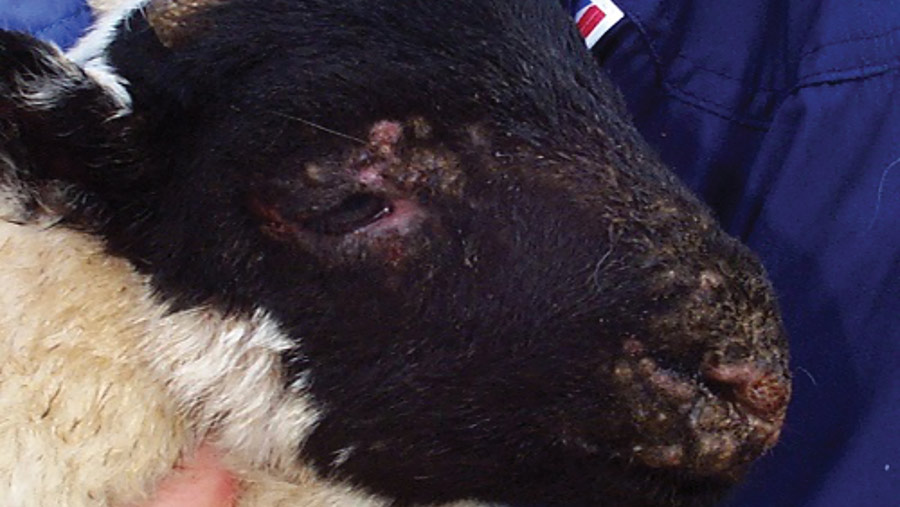Flocks urged to plan ahead to navigate orf vaccine shortage
 © Nadis
© Nadis Basing early vaccine orders on estimated flock requirements can help minimise supply disruption and ensure orf vaccine – and other products – reach farm this spring.
Sheep Veterinary Society president Dr Joe Henry, of Northumberland-based Black Sheep Farm Health, said such preparedness had helped secure orf vaccine for his clients this lambing season.
UK sheep farmers – and farmers globally – have endured three years of vaccine shortages, largely owing to production materials being used up in Covid vaccine manufacture.
See also: Strategic plan could improve sheep vaccine availability
Vaccine availability is looking better than in previous years, although orf vaccine Scabiguard has been hard to source, said Joe.
In terms of clostridial/pasteurella vaccines, he said Heptavac P is available, but mainly in 25-dose packs, while Ovivac P in 100ml bottles is out of stock.
Seasonal demand
Joe said organisation is key as vaccine production cycles are so seasonal. “You miss something for two months and you’ve missed it for a year,” he said.
“It’s frustrating not being able to get the vaccines you want. All farmers can do is assess what they need and give their vets as much warning as possible to then create a communication stream with pharmaceutical companies.”
He outlined some of the consequences of vaccine supply disruption:
- Welfare issues While farmers have done their best to work without vaccines, a lack of them eventually impacts animal welfare
- Farmer morale Scabby-faced lambs with lower growth rates (in the case of orf) and losses through the grazing season (in the case of pasteurella) are demoralising and costly
- Increased antibiotics use Without vaccines, infections sometimes must be treated with antibiotics. Sheep farmers have cut antibiotics use by 47.9% to 7.8mg/kg in five years, and losing this progress would be “a terrible shame”, said Joe.
Long-term strategy
National Sheep Association chief executive Phil Stocker called for government and industry to do the following:
- Accept that the days of buying vaccines on an ad-hoc basis without forward ordering are over
- Streamline licensing processes for vaccine products and explore the potential for integrating another country’s licensing protocols with the UK system
- Support domestic production. Louping ill and sheep scab vaccine technologies are emerging in the UK and expansion of vaccine production should be supported
- Look to develop alliances with countries producing vaccines to safeguard supplies.
Orf vaccine: How to manage the shortage
- Plan Work off a historical lambing percentage figure, update once scanning results are in and put orders in as early as possible.
- Alternative product A product on mainland Europe called Ecthybel can be imported by vets on a special import licence, but this takes a lot of effort and it is logistically difficult to import cold chain (temperature-sensitive) products. Furthermore, last year, Ecthybel also ran out.
- Watch for spikes at grazing The orf virus relies on a prick in the skin to enter the body. Thistles, gorse bushes and similar are an orf risk. Early weed control in April should be considered.
- Separate if possible Orf rarely appears in lambs less than three weeks old, so is typically an issue seen at grass. Separating clean animals from infected ones could minimise the spread, but this is difficult in most commercial settings.
- Treat secondary infection promptly Orf scabs may become infected with bacteria, which may require treatment with antibiotics.
- Stock up Farms equipped with a good medicine fridge, which has temperature monitoring and an alarm system, and sufficient cashflow, can stock up with vaccines and not be affected by later shortages.
